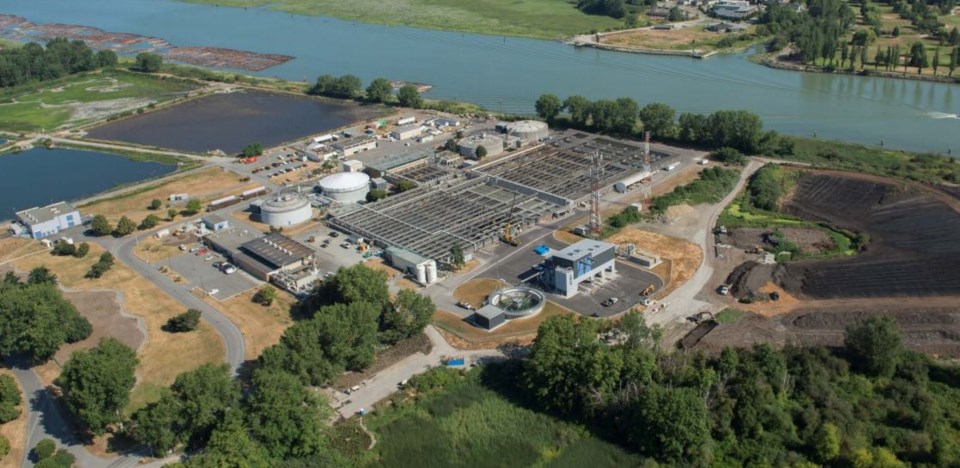A newly completed biosolids dewatering facility at Richmond's Iona Island Wastewater Treatment Plant will help make way for transforming an adjacent lagoon into freshwater ponds that will benefit a number of migrating birds that use the island as an important stopover site.
The dried-out and trucked-out biosolids can also be used as a building material and have been used in landscaping projects throughout B.C. for decades, including at Iona Beach Regional Park and Vancouver International Airport.
“Metro Vancouver is committed to using innovative approaches to generate energy and other resources from wastewater, including producing biosolids for beneficial use in land reclamation and landscaping projects,” said Richard Stewart, chair of Metro Vancouver’s Liquid Waste Committee.
“One goal of the Iona Island Wastewater Treatment Plant upgrade is maximizing resource recovery, and this project will help Metro Vancouver produce and handle biosolids more efficiently.”
Metro Vancouver said the $61 million facility, which is expected to begin operations in late 2022, is an important "first step" for more critical upgrades to the treatment plant.
The fully-enclosed facility has "stringent odour controls" and will dry out the solids left after the initial wastewater treatment, turning them into beneficial biosolids.
Sav Dhaliwal, chair of Metro Vancouver’s Board of Directors, described the project as “one of Canada’s most dynamic and transformative urban sustainability programs.”
“The upgrade of the Iona Island Wastewater Treatment Plant,” said Dhaliwal. “...represents a once-in-a-lifetime opportunity to contribute to the health and well-being of people, as well as the ecological health and biodiversity of the Fraser River estuary and the Salish Sea.”
“This new facility sets us up well to carry out these ambitious and necessary upgrades.”
Construction of the biosolids dewatering facility began in July 2019.



